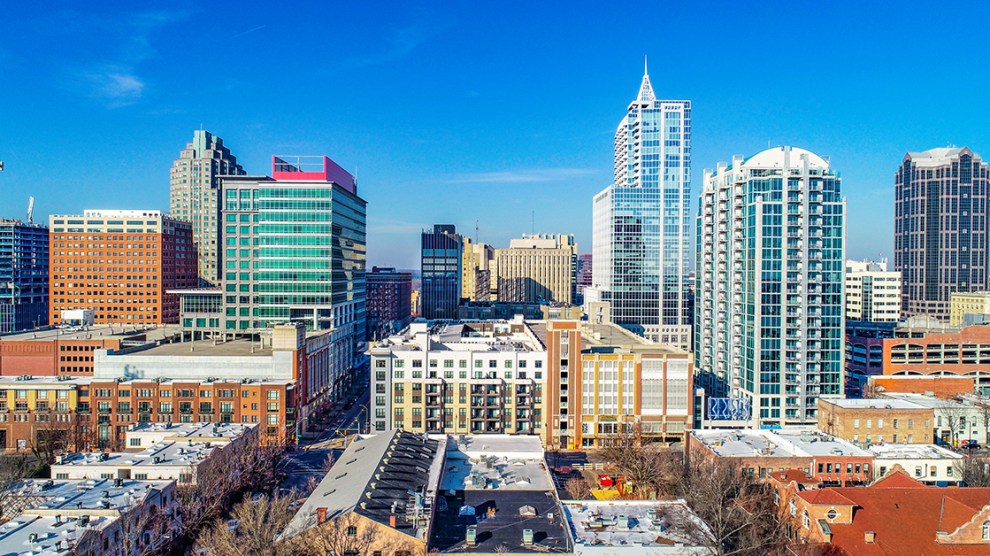Read the latest Yardi Matrix National Multifamily Market Report.
The average rent remained flat at $1,710 in January, while year-over-year growth increased 10 basis points to 0.5%
Report highlights:
- The U.S. average asking rent remained unchanged at $1,710 in January, up 0.5% year-over-year.
- Record deliveries forecasted for 2024 will limit rent growth.
- Renter-by-Necessity rents inched up 0.1%, Lifestyle remained flat.
- The average rent in the single-family rentals segment rose 1.5% year-over-year through January to $2,130.
Supply has the upper hand in rent growth; affordable housing and SFRs increase share
Metros in the Northwest and Midwest continued to post the highest rent gains, led by New York City (5.5% year-over-year), New Jersey (4.4%), Columbus (4.2%), Kansas City (3.4%) and Indianapolis (3.0%). Supply growth is weak in these markets. Oppositely, metros with high deliveries posted tepid rent growth, although absorption remained strong. Examples include tertiary markets Huntsville, Al., Port St. Luci, Fla., Colorado Springs, Boise, Idaho and secondary markets such as Austin, Charlotte, Denver, Phoenix and Nashville. Austin had the biggest decline, down 6.0%. The occupancy rate decline by 50 basis points year-over-year through December to 94.6% but was unchanged from November. The rate declined in all but three markets: Seattle (0.1%), San Francisco and New York (both unchanged), and fell by 1.0% or more in Atlanta (-1.2%), Indianapolis (-1.1%) and Austin (-1.0%).
Rent growth will remain weak in 2024, primarily due to robust supply—Yardi Matrix forecasts a record 540,000 units to be delivered in 2024 and another 460,000 units in 2025. Construction starts are dwindling as debt capital grows more expensive. These peaked in 2022 (678,000 units) and decelerated in the second half of 2023 when 500,000 units broke ground across the nation, and will remain on a downward trend in 2024. Affordable and SFR units increase their share as a percentage of the multifamily pipeline, from 7.9% in 2014 to 19.2% in 2023. Specifically, affordable starts amounted to 67,000 units in 2023, which is three times the volumes registered in 2013 and 2014, while SFR communities with 50-plus units reached 32,600 in 2022, ten times the volumes registered a decade ago.
Existing leases are also pressured by supply
On a monthly basis, rent growth remained flat, up 0.1% in the Renter-by-Necessity segment and unchanged in the Lifestyle component. Furthermore, of Yardi Matrix’s top 30 metros, Lifestyle rents contracted in 12 and RBN rents in 15. Among the weakest performers across segments were Austin (down 0.7% in both) and Detroit (down 1.1% in Lifestyle and 0.7% in RBN). Monthly gains were registered in 17 of the top 30 metros, led by Columbus (0.8%), Indianapolis (0.6%) and the Twin Cities (0.5%). San Diego posted the largest decline (-1.0%).
In line with multifamily asking rents, renewal leases moderate. The growth rate was up 5.1% year-over-year in November, dropping by 10 basis points month-over-month. Kansas City had the highest renewal rent growth rate at 9.5%, followed by Miami (8.9%) and Portland (7.8%). Recent heavy supply impacted existing leases as well, such as in Phoenix (0.4%) and Austin (0.6%). Both these metros registered negative asking rent growth. The national lease renewal rate stood at 66.6% in November, with the highest rate recorded in New Jersey (81.9%) and the lowest in Los Angeles (48.6%).
SFR rents advance in January
Demand for single-family rents was robust, which pushed the average rent up 1.5% year-over-year to $2,130 in January, 20 basis points and $2 above the December rate. Occupancy rose 0.1% year-over-year to 95.7% in December, but unchanged from November. The rising interest rates and low for-sale home inventory have affected institutional investors, which slowed their activity. But confidence in the sector persists, as private equity Blackstone, which has more than 17,000 SFRs in the U.S., agreed to acquire the REIT Tricon Residential, which owns 36,000 SFRs in the U.S. and Canada. More so, Blackstone intends to complete Tricon’s pipeline, which consists of $1 billion of BTR homes in the U.S. and $2.5 billion of apartments in Canada.
Read the full Matrix Multifamily National Report-January 2024.











Add Comment